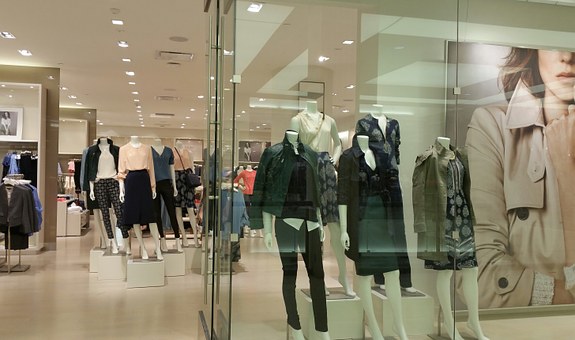Young consumers to prioritise cutting back on fashion spending despite overall confidence in their financial outlook
For the first time, consumers under 45 say that fashion will be the number one category for reducing spending in the next 12 months, potentially putting a break on the rapid growth of both online and store-based fast fashion retailers, according to a research by PwC.

The survey, which measures consumer sentiment in the UK using a nationally representative sample of 2,000 adults, also found that consumer sentiment has improved amongst almost every age group, with Brexit uncertainty abating since last year.
Now in its 11th year, the PwC Consumer Sentiment survey showed that:
-
There was a slight improvement in consumer sentiment since December: marginally more people think they will be better off in the next 12 months than worse off, reflecting the wider economic landscape of low unemployment, real wage growth and low interest rates, which has an overall positive impact on the wallets of consumers.
-
Although not as optimistic as in late 2015 and early 2016, this is an improvement in sentiment compared with results from both Christmas and April 2018, and is significantly stronger than at any time since the last recession.
-
There’s growing divergence between different age groups, with young people more positive than they’ve ever been, while 45-64 year olds are now more negative about their outlook than the over 65s.
-
Brexit uncertainty is affecting fewer consumers compared with the results of the December survey; nevertheless, more than two in five young people, Londoners and those living in Northern Ireland, say that they will reduce their spending or postpone big ticket purchases due to the proposed UK withdrawal from the EU.
-
Finally, not all categories of spending benefit from this positive sentiment, with consumers saying they’ll spend more on groceries, home improvement and going out, but less on big ticket items, and for the first time amongst under 45 year olds, clothing.
Lisa Hooker, consumer markets leader at PwC, said: “It’s interesting to see that for the first time ever in our survey, clothing has emerged as the number one area for reducing spending for those aged under 45. This is particularly as consumers’ appetite for this category has supported the rapid growth of fast fashion retailers, both online and in stores, in the past few years.
“This could be due to tightening belts, but we’re also increasingly seeing sustainability creep up the agenda, meaning consumers may be emphasising buying fewer, higher priced, better quality goods, just less often. We have also seen growth in the popularity of alternative models such as rental, and resale of secondhand goods.
“But despite the recent turmoil politically, the fact that consumers feel slightly more confident in regards to their financial outlook can only be positive, and a sign that consumer spending will be more resilient than some observers expect.
“As we enter into summer, whilst spending is likely to remain subdued, there may be some benefits from the more optimistic consumer. However, retailers should remain mindful that any short term respite may not last long if economic fundamentals change.”
Kien Tan, retail director at PwC, said: “As in previous surveys, we ask consumers whether they expect to spend more or spend less on a range of different product categories over the next 12 months, and two big trends emerged.
“The good news for leisure operators is that for the first time ‘going out’ consistently appeared in the top 3 list of categories for spending more, perhaps reflecting the trend towards experiences over ‘stuff’. Interestingly, the same was not true of ‘eating out’, which was in the top 3 list for spending less, with consumers preferring to ‘eat in’ with food delivery and meal kits, and then go out afterwards.
“However, our research shows the not-so-good news for some retailers, with big ticket items continuing to be the top answer for spending cutbacks for over 45s. In fact, amongst the 30% of consumers who said Brexit would affect their spending patterns, more than one in three said they would postpone a big ticket purchase.
“Meanwhile, clothing was at the top of the cutback list for under 45s; we know from previous surveys that spending less on clothing typically translates into buying fewer items rather than trading down to different shops, so this suggests a more challenging outlook for mid-market and fast fashion retailers in the coming months.”






